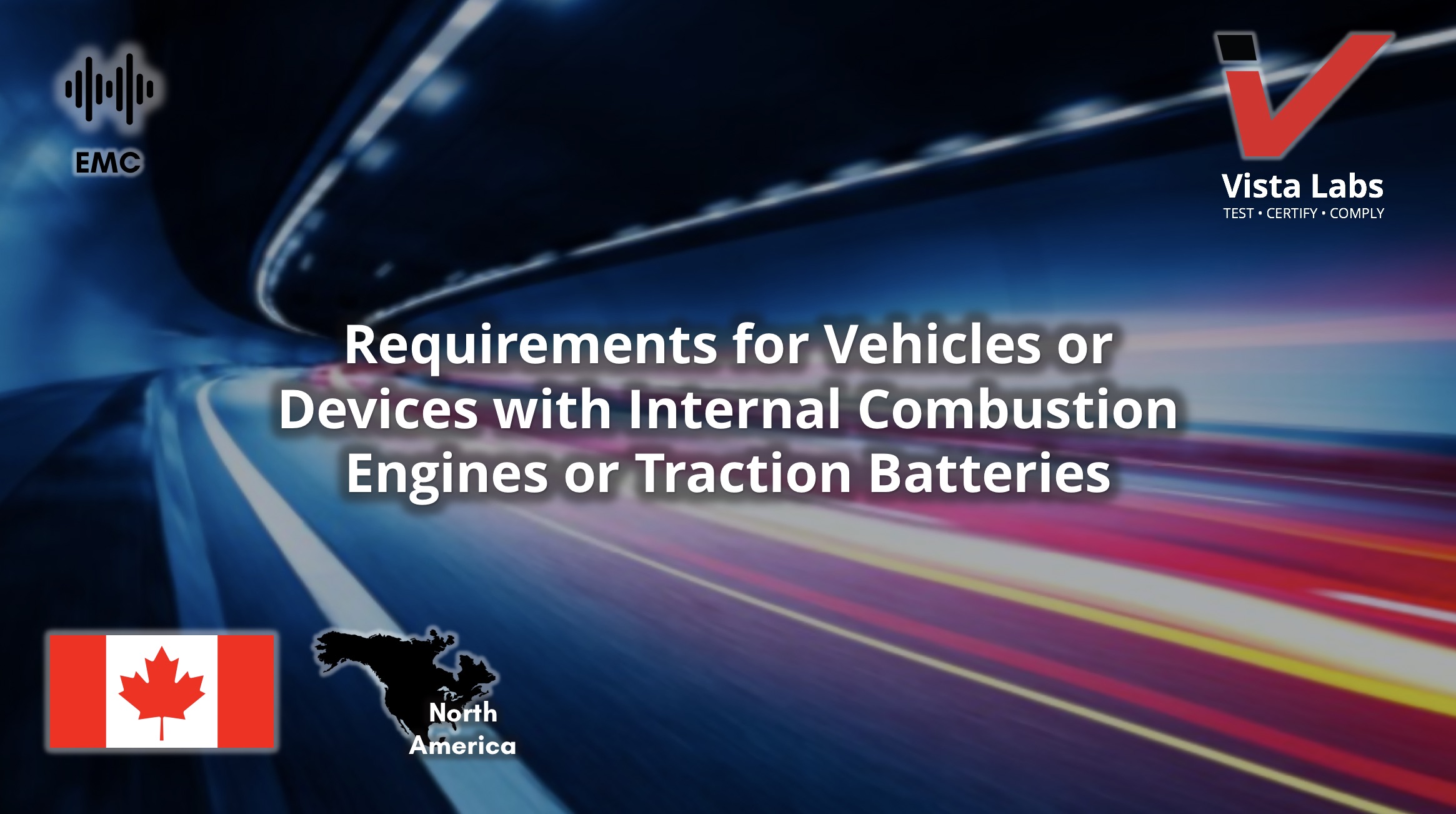The Department of Innovation, Science and Economic Development (ISED) of Canada updated requirements for vehicles, boats, and other devices.
These vehicles must be equipped with internal combustion engines, traction batteries or both, to fall under the scope of this standard.
On January 7, 2020, ISED released the first draft of Interference-Causing Equipment Standard ICES-002, Issue 7, "Vehicles, Boats and Other Devices Equipped with Internal Combustion Engines, Traction Batteries or Both".
This Interference Causing Equipment Standard (ICES) sets out limits and methods of measurement of radio frequency emissions, as well as administrative requirements for:
- vehicles propelled by an internal combustion engine, electrical means or both;
- boats of up to 15 m in length, which are propelled by an internal combustion engine, electrical means or both; including outboard boat engines that are marketed independently, i.e. not factory installed on a boat; and
- devices equipped with internal combustion engines or traction batteries.
In addition to this standard, the requirements of ICES-Gen shall apply, except where a requirement in ICES-Gen contradicts a requirement in this standard, in which case this standard shall take precedence.
Listed below are the main changes in issue 7:
- Title of the standard changed from “Vehicles, Boats and Other Devices Propelled by an Internal Combustion Engine, Electrical Means or Both” to “Vehicles, Boats and Other Devices Equipped with Internal Combustion Engines, Traction Batteries or Both”;
- Clarified the types of equipment that are in the scope of this standard;
- Clarified that outboard boat engines, if marketed independently, are in scope;
- Added requirements for vehicles, boats, and devices with wireless power transfer functionality;
- Added specific requirements for vehicles/boats/devices that connect to the ac mains, directly or indirectly;
- Added clarifications for the situation of multistage manufacturing;
- Removed requirements that are specified in ICES-Gen and referred to ICES-Gen for all general requirements;
- Clarified that the statistical compliance methods specified in the CAN/CSA-CISPR 12-10 standard cannot be used for demonstrating compliance with ICES-002.
A transition period of one year following its publication will be provided, within which compliance with either ICES-002, Issue 6 or ICES-002, Issue 7 is accepted.
After the expiry of this transition period, all products subject to this standard that continue to be manufactured, imported, distributed, leased, offered for sale, or sold in Canada shall comply with ICES-002, Issue 7.



